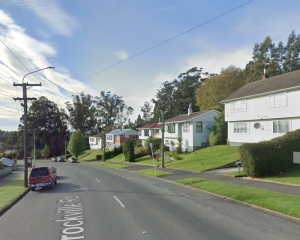Mrs Powell is president of Acclaim Otago, a support group for ACC claimants, and is also a member of ACC's Consumer Outlook Group, a national forum involving community representatives and ACC management.
Acclaim Otago made extensive submissions on a review undertaken by Doug Martin and other independent consultants on the operations of the then ACC fraud unit and its relationship with the wider ACC organisation and culture.
In the ACC-commissioned report, Mr Martin and colleagues highlighted concerns about excessively lengthy or repeated investigations.
If prima facie evidence was not found after an initial period of surveillance, the investigation should be discontinued, the report said.
However, some investigations had "continued for an unwarranted period of time" despite no evidence being found.
"One investigation has continued for 10 years and many have gone on for two to three years."
One claimant had also been investigated four times in a 12-year period.
Mrs Powell noted that since the review, undertaken in 2007, the fraud unit had been renamed the "investigations unit" and had been shifted into the ACC operations division, partly to meet Mr Martin's concerns that aspects of the unit's approach were "not well aligned with a responsive social insurance organisation".
Another "huge change" had been in the key performance indicators, which private investigators were required to meet while undertaking contract work on ACC-related fraud inquiries.
A new contract, introduced by ACC late last year, no longer required that 80% of all cases referred to such investigators should have a "successful outcome", including prosecution, cessation of ACC payments or suspension of entitlement.
"There was a huge potential for abuse with the previous system," she said.
Previously, private investigators could have been unfairly penalised by potentially losing lucrative contracts if they failed to meet the 80% performance target, after concluding that fraud allegations against some claimants were not well-founded, she said.
Emphasising a more dispassionate investigative approach also meant a much fairer deal for "an average Joe Citizen or Joan Citizen" who previously could have faced an "almost impossible" task in fighting the vast resources of the ACC if they had been wrongly denied payments because investigators had to meet a predetermined quota.
Fraud clearly should be investigated to ensure the ACC system maintained its integrity.
The ACC reforms were "positive movements" which she hoped would reduce the number of lengthy but fruitless fraud investigations, which were also heavily damaging for injured claimants, she said.
Fairfield resident Bruce Van Essen has previously been investigated by the ACC unit four times over a 12-year period, but has not been prosecuted.












